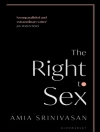In the late 1990s, in the wake of German unification, multiculturalism, and globalization, a surge of historical novels about German colonialism in Africa and its previously neglected legacies hit the German literary scene. This development, accelerated by the centenary in 2004 of Germany’s colonial war in South-West Africa, has continued to the present, making colonialism an established theme of literary memorialization alongside Germany’s dominant memorythemes — National Socialism and the Holocaust, the former GDR and its demise in the
Wende, and, more recently, ‘1968.’
This is the first comprehensive study of contemporary German literature’s intense engagement with German colonialism and with Germany’s wider involvement in European colonialism. Building on the author’s decade of research and publication in the field, the book discusses some fifty novels by German, Swiss, and Austrian writers, among them Hans Christoph Buch, Alex Capus, Christof Hamann, Lukas Hartmann, Ilona Maria Hilliges, Giselher W. Hoffmann, Dieter Kühn, Hermann Schulz, Gerhard Seyfried, Thomas von Steinaecker, Uwe Timm, Ilija Trojanow, and Stephan Wackwitz. Drawing on international postcolonial theory, the German tradition of cross-cultural literary studies, and on memory studies, the book brings the hitherto neglected German case to the international debate in postcolonial literary studies.
Dirk Göttsche is Professor of German at the University of Nottingham.
Table of Content
Introduction
From Colonial Fantasies to Postcolonial Memory: Historical and Theoretical Parameters
Remembering German Colonialism
Rewriting Colonialism in Cross-Cultural and Transcultural Perspective
Remapping the History of European Colonialism
From the Past to the Present and Back: Colonial History and Family History
Conclusion: German (Post-) Colonial Memory in Perspective
Bibliography
Index of Authors and Works Discussed
General Index












